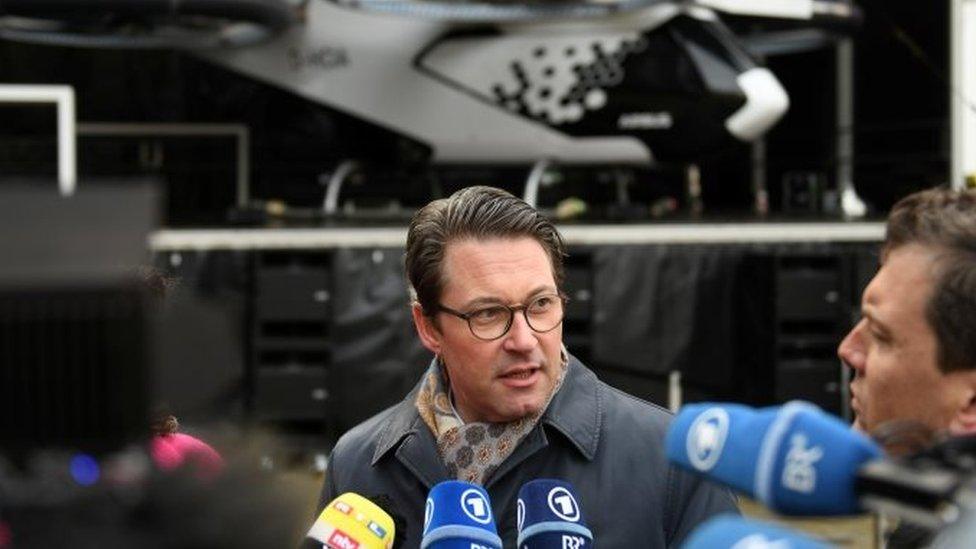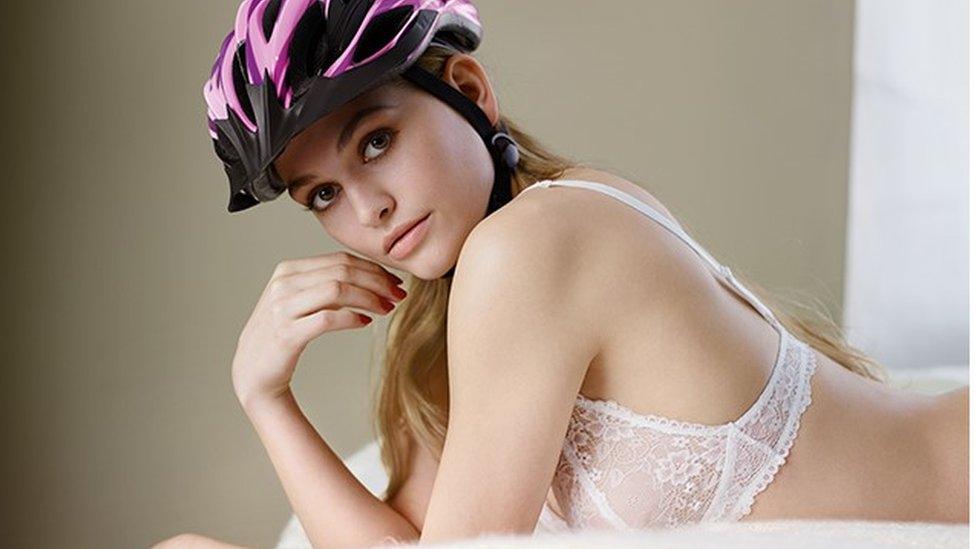Cycle helmet safety campaign with scantily clad models sparks storm
- Published

Transport Minister Andreas Scheuer says the campaign saves lives
A model lies suggestively on a bed wearing little more than knickers - and a cycle helmet.
It is an attempt by the German transport ministry to get younger cyclists to embrace head protection.
But the video - what the Transport Minister Andreas Scheuer thinks is a hip way of getting the message across - has run into protest.
"Embarrassing, stupid and sexist," said a senior female politician, two days before the campaign launch.
The campaign uses an English slogan, acknowledging that a cycle helmet may be unflattering "but saves my life". Aside from the video, street posters are due to go up throughout Germany from Tuesday.
The campaign features Alicija, a hopeful in Germany's Next Top Model, as well as a range of male models.
But Maria Noichl, who chairs the women's committee of the Social Democratic Party (SPD), was scathing in comments to Bild newspaper: "Embarrassing, stupid and sexist when the transport minister markets his policy with naked flesh."
And the Minister for the Family Franziska Giffey, also a Social Democrat, posted a picture of herself on Facebook with the comment: "With helmet and clothed".
Allow Facebook content?
This article contains content provided by Facebook. We ask for your permission before anything is loaded, as they may be using cookies and other technologies. You may want to read Meta’s Facebook cookie policy, external and privacy policy, external before accepting. To view this content choose ‘accept and continue’.
Mr Scheuer, whose conservative CSU governs in coalition with the Social Democrats and Chancellor Angela Merkel's CDU, appears unfazed.

His ministry defended the approach, pointing out on Twitter, external that the target group is young men and women who spurn helmets on aesthetic grounds. The video has been viewed by 1.78 million people aged between 14 and 49, the ministry says.
According to Germany's Road Safety Association (DVR), 430 cyclists were killed on Germany's streets last year - 14% more than in 2017. Only 8% of the target age group wear helmets, the DVR says.
- Published2 February 2011